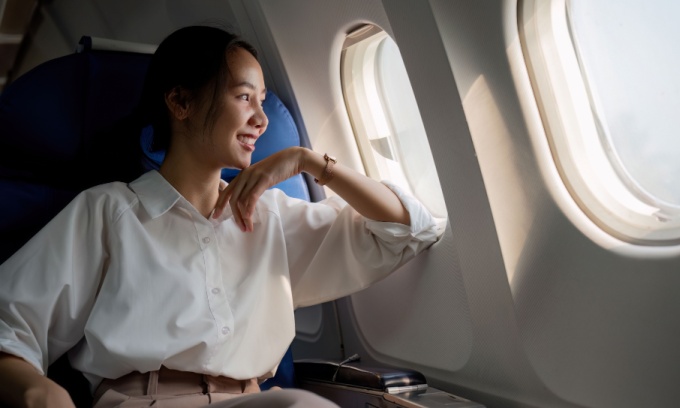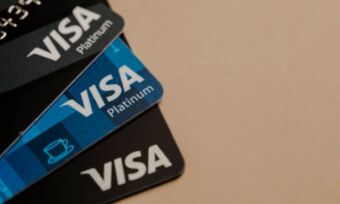How can you score a business class upgrade with your credit card?
If you’re an avid traveller, and are keen on snagging a business class upgrade but don’t want to pay business class prices, it may be worth investigating credit cards that offer rewards points. You may have heard of frequent flyer credit cards, but in fact, there’s no one-size-fits-all frequent flyer credit card. Here are a few ways you can go about earning points to put towards flight upgrades:
- Converting credit card reward points: Some rewards credit cards allow you to earn points when you spend on the card, and you may be allowed to convert your points to frequent flyer points or convert them to points that can be used with partner airlines.
- Earning frequent flyer points directly: There are also rewards credit cards in Australia that will allow you to directly earn frequent flyer points with certain airlines based on your credit card spend.
- Earning frequent flyer points as a signup bonus: Some cards will award you with frequent flyer points as a signup bonus, and if you can find the right deal, you can potentially score a lot of points in one go—though conditions will likely apply.
If you’re looking for some of the best credit cards for frequent flyers, you can compare them with Canstar to find a card that works for your needs and budget. It’s important to read any relevant documentation, such as the Product Disclosure Statement (PDS), Target Market Determination (TMD) and Key Facts Sheet, for any credit card product you’re considering.
Once you have signed up and started collecting points, your frequent flyer program may then allow you to start putting them towards travel perks like flight upgrades (including upgrades to business class), lounge access, hotel stays and concierge services.
How do you convert points to upgrades?
While the process of upgrading from economy to business class will differ between airlines, generally speaking, you’ll be able to upgrade online. If you’ve booked an economy seat on a flight and received your confirmation, you’ll typically be able to log into your frequent flyer account, select your booking and see if an upgrade is available.
You may be able to upgrade immediately if you have enough frequent flyer points stored up. Alternatively, you may be able to request an upgrade using your points, and the airline will notify you if one becomes available before the flight leaves.
While different airlines will have different processes, you may find that they have tiered frequent flyer rewards programs. For example, Qantas separates its members into silver, gold and platinum and above tiers. Preference for upgrades will usually be given to those in higher tiers and filter their way down.
How many points does it take to upgrade to business class?
The points needed for an upgrade to business class will vary between airlines and routes, so let’s take a look at an example.
At the time of writing Virgin says it costs a minimum of 10,000 of its Velocity Points to score you an upgrade on a domestic flight. This would be enough to get you an upgrade on a flight from Sydney to Melbourne, if you were travelling on a fare that’s not an Economy Lite or Economy Reward fare.
According to Qantas, on the other hand, it would cost approximately 6,200 Qantas Points for a business class upgrade on a Sydney to Melbourne flight, if you were travelling on one of its Flexible Economy fares.
The points cost goes up from there. If you were to take a longer domestic flight—for example, Brisbane to Perth—then Virgin says that it would cost you 30,000 points to upgrade.
Qantas says that, on a flight from Brisbane to Perth, it would cost you approximately 13,100 Qantas Points to upgrade to business class on a Flexible Economy fare.
How easy is it to actually earn frequent flyer points?
While it’s all well and good to think about how you’ll spend your frequent flyer points on upgrades, it’s worth keeping in mind how you can actually earn them in the first place.
For example, two of the cards that have a 5-Star Rating at the time of writing: The American Express Velocity Platinum Card and the American Express Qantas Ultimate Card, will grant you a signup bonus of 60,000 and 70,000 points for their respective partner airlines, provided you spend $3,000 within the first three months of card approval.
Both cards offer the same amount of rewards points for credit card purchases—2.25 points per dollar spent on purchases with the partner airline, 1.25 points per dollar spent on most credit card purchases, and 0.5 points for each dollar spent on purchases from government bodies (terms and conditions apply).
At the time of writing, the American Express Velocity Platinum Card has an annual fee of $440, while the American Express Qantas Ultimate Card has an annual fee of $450.
It’s important to note that the above cards may not suit everyone, especially considering the hefty annual fees and interest rates (both have purchase rates of 23.99%). Consider your own personal needs and financial situation, how you plan to use the credit card and if you’ll carry any outstanding balances forward and accrue interest. Interest costs and fees have the potential to erode any savings made through rewards points.
So … how does that translate to actual upgrades?
Say you sign up for either card mentioned above and spend the required $3,000 within the first three months, you’d have frequent flyer points with either Virgin (60,000) or Qantas (70,000).
According to the airlines’ own websites, 60,000 points could get you six business class upgrades on Sydney to Melbourne flights with Virgin. With Qantas, 70,000 could get you about 11 business class upgrades for the same route.
Do frequent flyer points expire?
Unfortunately, frequent flyer points generally don’t last forever, and may expire after a certain point. Virgin says that its Velocity Points expire after 24 months of inactivity, but may expire after one month in certain short-term circumstances (e.g. family point transfers and inheritance of points). Qantas, on the other hand, says you must either earn or use Qantas points on eligible activities at least once every 18 months, or your points will expire.
This means you’ll need to be actively earning points and, in some circumstances, redeeming them. If you receive points that are subject to short-term expiry, it’s best to check with your frequent flyer program to ensure that you don’t lose the points before you’ve had a chance to use them.
A benefit of the American Express Rewards program is that its points do not expire and there are no limits to the amount of points you can earn, as long as the account remains active and in good standing.
What should you be wary of with frequent flyer credit cards?
While it may seem tempting to assume that signing up for a frequent flyer card is all you’ll need to do to be living it up in business class, the reality is, in order to earn any of the really juicy rewards with a credit card, you will need to spend quite a decent chunk of money. And to get the full benefit you’ll need to be paying it off in full each month to avoid being slugged with high interest charges.
If this fits within your lifestyle and budget, and you’re confident in your ability to manage a credit card and make your required repayments, then a frequent flyer credit card can potentially be a way to earn a nice little bonus now and again.
If you infrequently use a credit card, though, or are unlikely to spend enough money to earn a meaningful number of reward points or struggle to pay off the balance each month, then you may find that a frequent flyer credit card is not worth the higher annual fee or interest rates that typically come with reward cards.
As seen from the example above, even if a credit card offers you a big haul of bonus signup points, a large spend may be required to get them, and going into unnecessary debt to earn frequent flyer points may not be a wise financial move.








